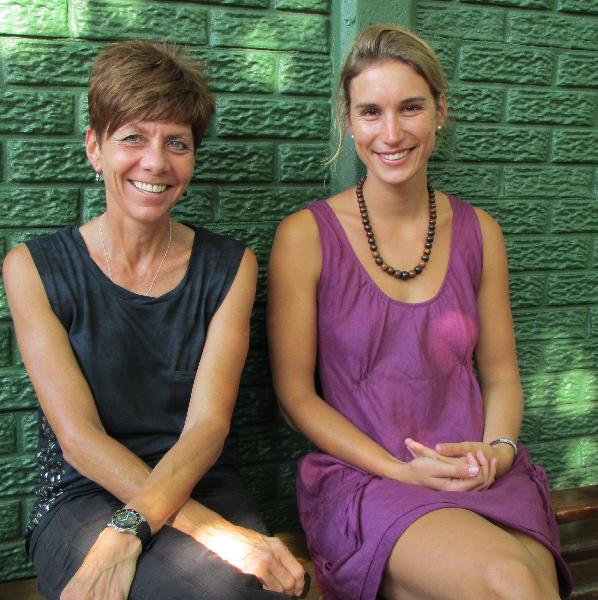
More than 250 delegates from around the world recently descended on Grahamstown to attend the 37th annual conference of the South African Association of Botanists (SAAB).
The conference, which gave local and international botanists the chance to present their work on a diverse range of topics including plant physiology and climate change, pollination biology, ethnobotany and medicinal use of plants, taxonomy and evolution, ecology, restoration and rehabilitation, was hosted by Rhodes University's Botany department from 17 to 19 January.
Professor Jill Farrant, president of SAAB and holder of a research chair in plant molecular physiology in UCT's Department of Mollecular and Cellular Biology described the event as a “great space for people to come together and share their views and ideas on really important topics”.
Prof Farrant, who is UCT's first woman A-rated scientist, was awarded the Harry Oppenheimer Fellowship award last year and was also named the Distinguished Woman Scientist in the Life Sciences in the South African Women in Science Awards (WISA). Her work in finding out how the genes in drought-resistant plants can be harnessed to boost agriculture in drought areas is earning her international acclaim, but Prof Farrant said her heart lies closer to home. “We have the most amazing diversity of plants in South Africa. I've been lucky to find some that could help us in the future. We must celebrate our diversity and work with it,” she said.
South Africa is home to three biodiversity hotspots, has 10% of all known plant species and 7% of the world's reptile and mammal species, this according to Dr Suzi Vetter of Rhodes University's Botany department. “We are also very high in social diversity and we have a wealth of biocultural diversity. These are things to be cherished,” she said.
According to Dr Vetter, whose talk titled “Biocultural diversity presents conservation opportunities” addressed the challenges and pitfalls in current conservation policies, modern human behaviour is thought to have evolved along the Cape south coast. “So you can see that South Africa plays an integral role in matters of the environment and human evolution. We should aim to get our conservation policies up to date so we can deal with the complexities facing us today and not be hindered by old-school methods,” she said.
Lydia Mogano, also of Rhodes University's Botany department, highlighted the role nature and the environment play in sustaining the emotional, spiritual and mental well-being of local communities. In her talk titled “Unearthing the essence of nature and the perception of natural landscapes among the Xhosa people in the Eastern Cape, Mogano echoed Vetter's plea for increased acknowledgement of the pivotal role our environment plays in many aspects of daily life. “From my research I've learnt that people don't only view nature as a source of untapped resources. Forests play a huge role in people's overall sense of wellbeing and place in the world, and they should be cherished,” she said.
In his address titled “The utilisation of wild plant species for vegetables in Northern KwaZulu- Natal”, Alpheus Zobolo of the University of Zululand identified two biodiversity hotspots situated along the northern KwaZulu-Natal coastline where local communities are making the most of the abundant herb life. “There are so many varieties growing naturally in these environments and people are using them both for food and medicinal purposes,” he said.
Although there is scope for the use of plants in the area, Zobolo said that it is only really the elders in the community who are using the natural resources, while the local youth remain generally uninterested. “I think this is because the youth don't really know the potential of the plants. They are not interested in the collection and processing of wild vegetables during ceremonies, and this might be because they aren't familiar with the vegetables.”
Zobolo said that implementing garden projects at schools and integrating the knowledge of traditional vegetables into the conventional education system could be a way of spreading awareness on the possibilities of the vegetables.
Megan Beckett, a masters student from UCT who is supervised by Prof Farrant said this was the first SAAB conference she had attended, and that she had thoroughly enjoyed it. “It has been great being able to share research findings and ideas with other people in the field,” she said.
During the conference three scientists of international repute gave plenary addresses, including Prof David Beerling of the Department of Animal and Plant Sciences of the University of Sheffield, whose address was titled “The emerald planet: how plants 'greened the earth'”. Prof Beerling is the author of “The emerald planet”.
Also in the line up was Prof Mike Wingfield, Director of the NRF-DST Centre of Tree Health Biotechnology at the University of Pretoria, who addressed delegates on “Global tree health: what next?” Prof Wingfield highlighted the challenges facing tree and plant health in the face of invasive pathogens, insects and climate change.
Also, Dr Peter Weston, Senior Principal Research Scientist at the National Herbarium of New South Wales and a member of the Royal Botanic Gardens in Sydney presented his thoughts on the role that systematics and evolutionary studies can play in linking historical climate change and evolution. Dr Weston was part of a recent collaborative effort to examine biome transitions in evolutionary history, and has made important contributions to the debate surrounding the use of fossils as calibrations in molecular dating studies.
Next year's conference will be held at the University of Pretoria.
Photo: Professor Jill Farrant of UCT and Masters student Megan Beckett, also of UCT, presented their research findings on resurrection plants at this years SAAB conference, which was held at Rhodes University this week.
Photographer: Sarah-Jane Bradfield.
